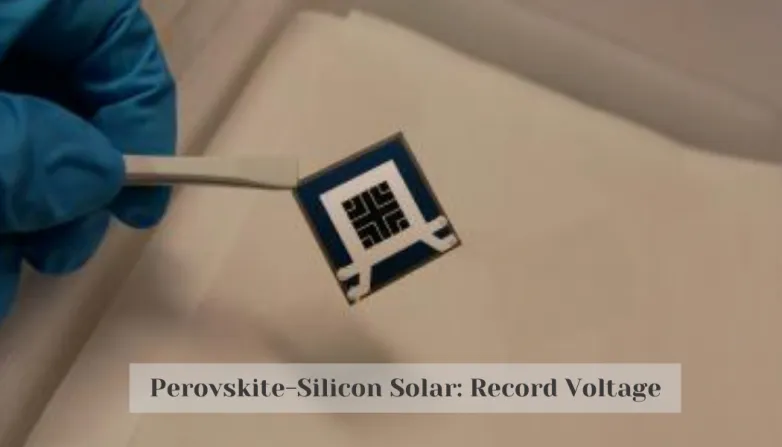Perovskite-Silicon Solar: Record Voltage
- Discover how Fraunhofer Institute for Solar Energy Systems ISE achieved a record open circuit voltage of >2.8 V in their perovskite-based triple-junction solar cell. Understand how optimizations in interlayers and gas quenching methods enabled this success and how this could lead to more efficient solar energy generation in the future.

A research team at the Fraunhofer Institute for Solar Energy Systems ISE has developed a promising perovskite-based triple-junction solar cell with an open circuit voltage of >2.8 V, a record value for this type of cell. This achievement was made possible through a gas quenching method for deposition of the top perovskite layer, as well as optimization of interlayers between perovskite subcells. This opens up huge untapped potential for combining perovskite and silicon to generate electricity. The team's success suggests that the cell has excellent material properties for electricity generation, and that the fundamental aspects needed for a very efficient solar cell are in place. These findings could be instrumental in advancing the concept of triple-junction solar cells in the future.
What Potential Does a Record Open Circuit Voltage of 2.8V in a Perovskite-Based Triple Junction Solar Cell Offer?
- Demonstrated potential of a record open circuit voltage of 2.8V in a perovskite-based triple junction solar cell
- This open circuit voltage surpasses the theoretical limit of 2.4V for triple junction devices and highlights the potential of perovskite-based solar cells for further efficiency improvement
- The collaboration between KAUST and LONGi seeks to leverage the expertise and resources of both organizations to develop advanced solar cell and module designs with higher efficiency levels
- The partnership will also explore new materials and solar cell concepts, advanced manufacturing processes, and performance optimization
- The collaboration will collaborate to deliver talent development through joint educational and vocational training programs, workshops and exchange visits that support the Saudi Green Initiative and the Kingdom of Saudi Arabia’s Vision 2030
Also read
- CNNP Optoelectronics brings utility-scale perovskite modules out of the lab
- Low-Temperature Sequential Deposition Lifts Inverted Perovskite Solar Cells Efficiency Record
- Self-Assembling Molecule Breakthrough Brings Commercial Perovskite Solar Closer to Market
- Camphor Additives Boost Perovskite Solar Cell Efficiency
- NUS Sets Record With 26.4% Perovskite-Organic Solar Cell
